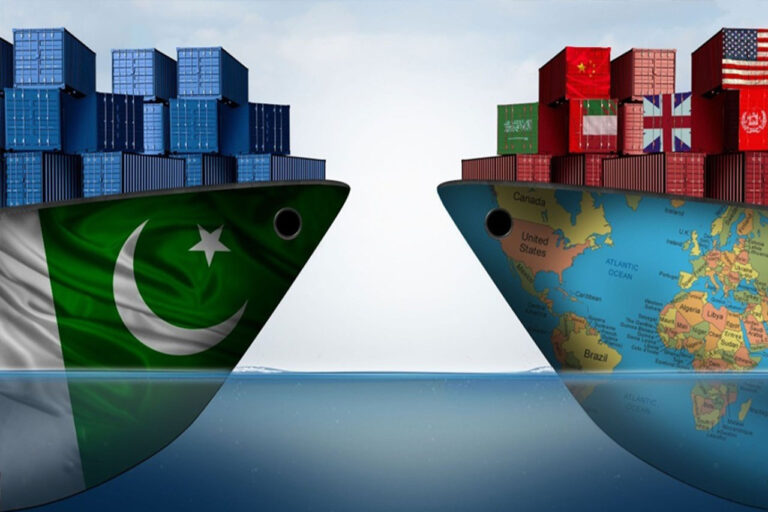The Role of Commission Agents in Import Export
The global marketplace is a complex and interconnected web of transactions, where goods and services flow across borders, connecting producers with consumers worldwide. In this intricate system, commission agents play a pivotal role, acting as intermediaries who facilitate the import and export of goods. These agents, also known as brokers or middlemen, are crucial in ensuring the smooth and efficient movement of products, bridging the gap between buyers and sellers. This article delves into the role of commission agents in import and export, exploring their functions, significance, and the challenges they face.
Understanding Commission Agents
Commission agents are individuals or firms that act as intermediaries between buyers and sellers in international trade. They do not take ownership of the goods but earn a commission on the sales they facilitate. Their primary role is to connect exporters with importers, negotiate deals, and ensure the successful completion of transactions. Commission agents possess in-depth knowledge of the markets they operate in, including regulatory requirements, market trends, and cultural nuances.
Key Functions of Commission Agents
Commission agents perform a variety of functions that are essential to the import-export process. These functions can be broadly categorized into the following areas:
- Market Research and Intelligence
One of the primary roles of agents is to conduct market research and gather intelligence. They analyze market trends, identify potential buyers and sellers, and assess the demand and supply dynamics of various products. This information is invaluable for exporters and importers, enabling them to make informed decisions and identify lucrative opportunities.
- Networking and Relationship Building
Agents have extensive networks of contacts in the international trade community. They leverage these relationships to connect exporters with reliable importers and vice versa. Building and maintaining strong relationships with key stakeholders, such as customs officials, shipping companies, and financial institutions, is crucial for the smooth execution of transactions.
- Negotiation and Deal Facilitation
Negotiating favorable terms and conditions is a critical aspect of the commission agent’s role. They act as mediators, facilitating communication between buyers and sellers and ensuring that both parties agree on price, payment terms, delivery schedules, and other contractual details. Commission agents aim to create win-win situations, where both exporters and importers benefit from the deal.
- Logistics and Documentation Support
The import-export process involves complex logistics and extensive documentation. The agents assist in coordinating the movement of goods, ensuring that shipments are handled efficiently and comply with regulatory requirements. They help prepare and verify necessary documents, such as invoices, bills of lading, certificates of origin, and customs declarations, reducing the risk of errors and delays.
- Risk Management and Problem Resolution
International trade involves various risks, including political instability, currency fluctuations, and regulatory changes. Agents help mitigate these risks by providing valuable insights and advice to their clients. In case of disputes or unforeseen issues, such as shipment delays or quality concerns, commission agents act as problem solvers, working to resolve conflicts and maintain the trust of both parties.
The Significance of Commission Agents
Agents play a vital role in the import-export ecosystem, offering numerous benefits to exporters and importers:
- Access to New Markets
For exporters, agents provide access to new and diverse markets that may otherwise be difficult to penetrate. These agents have local knowledge and connections, enabling exporters to reach potential buyers in different regions and countries.
- Cost Efficiency
Using agents can be cost-effective for exporters and importers. Instead of establishing their own offices or hiring staff in foreign markets, businesses can rely on commission agents to represent their interests. This reduces overhead costs and minimizes financial risks.
- Expertise and Specialization
Agents possess specialized knowledge of specific industries and markets. They stay updated on market trends, regulatory changes, and competitive dynamics. This expertise helps exporters and importers navigate the complexities of international trade more effectively.
- Time Savings
Outsourcing tasks such as market research, negotiation, and documentation to commission agents allows businesses to focus on their core activities. This saves time and resources, enabling companies to operate more efficiently.
- Risk Mitigation
Agents play a crucial role in identifying and mitigating risks associated with international trade. Their understanding of local regulations, cultural differences, and potential pitfalls helps businesses avoid costly mistakes and navigate challenges smoothly.
Challenges Faced by Commission Agents
Despite their significant contributions, commission agents face several challenges in their role:
- Regulatory and Compliance Issues
Agents must navigate complex regulatory environments in different countries. Compliance with customs regulations, trade policies, and documentation requirements can be challenging, particularly when dealing with multiple jurisdictions.
- Market Volatility
Global markets are subject to fluctuations due to economic, political, and social factors. Commission agents must stay abreast of these changes and adapt their strategies accordingly. Market volatility can impact demand, pricing, and the overall feasibility of transactions.
- Competition
The import-export industry is highly competitive, with numerous agents vying for business. Commission agents must differentiate themselves by offering superior services, building strong relationships, and demonstrating their expertise.
- Technological Advancements
The rise of digital platforms and e-commerce has transformed the import-export landscape. Commission agents must embrace technology to remain relevant, utilizing online marketplaces, digital marketing, and advanced logistics solutions to serve their clients effectively.
- Trust and Reputation
Building and maintaining trust is crucial for commission agents. Any misstep, such as delays, miscommunication, or quality issues, can damage their reputation and lead to the loss of clients. Agents must consistently deliver on their promises to retain the confidence of buyers and sellers.
Conclusion
Commission agents are indispensable players in the world of international trade. Their role in connecting exporters and importers, facilitating transactions, and ensuring the smooth flow of goods across borders cannot be overstated. By providing market intelligence, negotiation expertise, logistical support, and risk management, commission agents contribute significantly to the success of import-export activities. However, they also face challenges, including regulatory complexities, market volatility, competition, technological advancements, and the need to maintain trust.
Despite these challenges, the value that commission agents bring to the table ensures their continued relevance in the global marketplace. As the world becomes more interconnected and international trade continues to expand, the role of commission agents will likely evolve, adapting to new trends and technologies while remaining a cornerstone of the import-export ecosystem. For businesses looking to navigate the complexities of global trade, partnering with experienced and reliable commission agents can be a strategic advantage, opening doors to new markets and opportunities.




